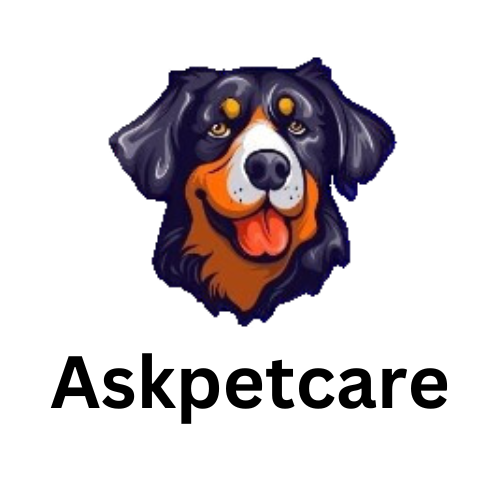Hello, dog lovers today I will explain in detail about Best Dog Food for German Shepherd with Diarrhea.
Choosing the right food is super important if your German Shepherd has diarrhea. Their tummies can be sensitive, so picking a food that’s easy to digest is key to helping them feel better. Look for food with simple ingredients and gentle proteins that won’t upset their stomach even more. It’s a good idea to talk to your vet to figure out why your dog has diarrhea and get advice on what food will help them feel better.
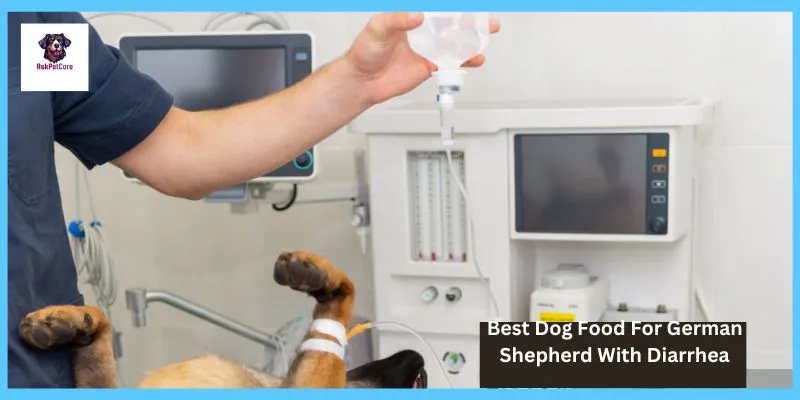
Hello everyone who loves dogs! I’m Dr. Arif Aziz, and I’ve been taking care of pets especially dogs at my clinic for a long time, exactly 14 years! I’m here to share some valuable information with you that I’ve gathered from books during my study time written by experts in veterinary medicine (DVM) and MSC (Master of Science), as well as from my own experiences working with dogs.
Firstly explores various reasons for a German Shepherd experiencing diarrhea:
Why does my German Shepherd keep getting diarrhea?
- Dietary Changes: Abruptly changing the dog’s diet or introducing new foods.
- Food Allergies: Sensitivity or allergy to specific ingredients in their food.
- Intestinal Parasites: Infections from parasites such as worms or Giardia.
- Bacterial Infections: Bacterial overgrowth or infection in the gastrointestinal tract.
- Viral Infections: Viral infections like parvovirus or coronavirus.
- Stress or Anxiety: Psychological stressors or changes in the environment.
- Ingestion of Foreign Objects: Consuming non-food items that irritate the digestive system.
- Toxic Ingestion: Ingestion of toxic substances or household chemicals.
- Medication Side Effects: Certain medications can cause gastrointestinal upset.
- Pancreatitis: Inflammation of the pancreas, often triggered by dietary indiscretion.
- Inflammatory Bowel Disease (IBD): Chronic inflammation of the digestive tract.
- Colitis: Inflammation of the colon, which can lead to diarrhea.
- Dietary Indiscretion: Eating spoiled food, garbage, or table scraps.
- Food Intolerance: Inability to digest certain food components like lactose.
- Systemic Diseases: Underlying health conditions such as kidney disease or thyroid disorders can manifest with gastrointestinal symptoms like diarrhea.
It’s essential to consult with a veterinarian to determine the exact cause of diarrhea in a German Shepherd and to provide appropriate treatment.

Now understands signs and symptoms of diarrhea in German shepherds:
Here are fifteen signs and symptoms of diarrhea in German Shepherds:
- Frequent Bowel Movements: Your German Shepherd may have more bowel movements than usual, possibly occurring more than three times a day.
- Loose or Watery Stools: Diarrhea is characterized by loose, watery, or runny stools.
- Blood or Mucus in Stools: Diarrhea accompanied by blood or mucus indicates potential inflammation or infection in the gastrointestinal tract.
- Straining to Defecate: Your dog may appear to be in discomfort or strain while attempting to pass stool.
- Accidents in the House: If your German Shepherd is house-trained, diarrhea may lead to accidents indoors.
- Lethargy: Diarrhea can cause weakness, fatigue, and a lack of energy in dogs.
- Decreased Appetite: Your dog may show disinterest in food or refuse to eat due to gastrointestinal discomfort.
- Weight Loss: Chronic diarrhea or severe gastrointestinal issues can lead to weight loss over time.
- Vomiting: Diarrhea may be accompanied by vomiting, which can exacerbate dehydration and electrolyte imbalances.
- Abdominal Pain: Your German Shepherd may show signs of discomfort or pain in the abdominal area, such as whining, pacing, or reluctance to be touched.
- Excessive Gas: Increased flatulence or foul-smelling gas can be a symptom of gastrointestinal upset.
- Fever: Inflammatory or infectious causes of diarrhea may lead to a fever in affected dogs.
- Dehydration: Diarrhea can lead to dehydration, characterized by dry gums, sunken eyes, and lethargy.
- Increased Thirst: Your dog may drink more water than usual to compensate for fluid loss due to diarrhea.
- Hunching Posture: Dogs with abdominal discomfort may adopt a hunched or crouched posture to alleviate pain.
If you notice any of these signs or symptoms in your German Shepherd, it’s important to consult with a veterinarian promptly for proper diagnosis and treatment.
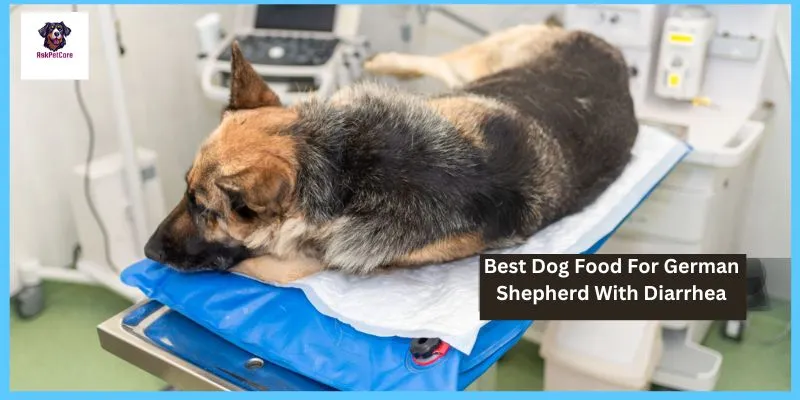
Ten homemade best foods for diarrhea in German Shepherds:
What foods stop diarrhea in dogs?
When a German Shepherd is experiencing diarrhea, it’s crucial to provide easily digestible, bland foods that can help soothe the stomach and firm up stools. Here are ten suitable options:
- Boiled Chicken and Rice: Cooked boneless, skinless chicken breast or thighs mixed with plain boiled rice is a classic bland diet often recommended for dogs with diarrhea.
- Boiled Ground Turkey and Pumpkin: Boiled ground turkey (lean) mixed with canned pumpkin (not pumpkin pie filling) can provide gentle fiber and aid in firming up stools.
- Plain Boiled White Fish and Sweet Potato: Boiled white fish like cod or tilapia paired with mashed or boiled sweet potato offers a gentle, nutritious option.
- Low-Fat Cottage Cheese and Oatmeal: Plain, low-fat cottage cheese mixed with cooked oatmeal (without added sugar or flavorings) can provide a bland, easy-to-digest meal.
- Boiled Egg and Plain Yogurt: Hard-boiled eggs mashed with plain, unsweetened yogurt (without artificial sweeteners) can offer a gentle source of protein and probiotics.
- Lean Ground Beef and Quinoa: Lean ground beef (cooked and drained) mixed with cooked quinoa provides a balanced, easily digestible meal.
- Baby Food (Chicken or Beef): Plain baby food jars containing chicken or beef without added seasonings or spices can be easily digested by dogs with diarrhea.
- Boiled Potatoes and Lean Turkey: Boiled, mashed potatoes (without butter or seasoning) mixed with lean ground turkey offers a bland, soothing meal.
- White Rice and Low-Sodium Chicken Broth: Plain-cooked white rice mixed with low-sodium chicken broth can provide hydration and electrolytes while being easy on the stomach.
- Pumpkin and Plain Cooked Pasta: Canned pumpkin (not pumpkin pie filling) mixed with plain cooked pasta (without sauces or seasonings) can help firm up stools and provide gentle fiber.
Always introduce these foods gradually and monitor your dog’s response. If diarrhea persists or worsens, consult with a veterinarian for further evaluation and treatment.
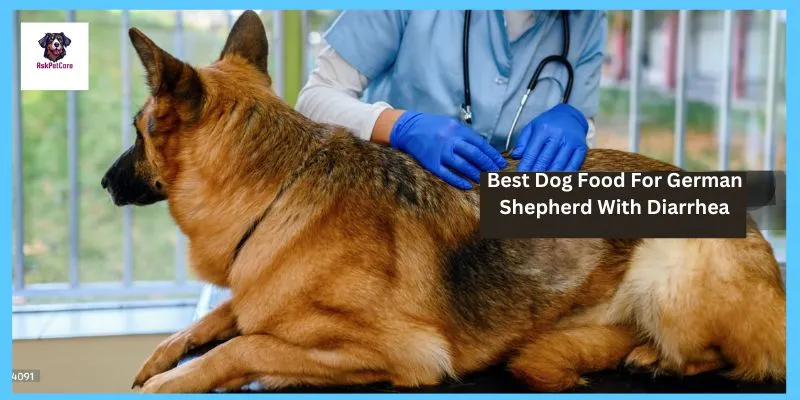
Ten prepared best foods for diarrhea in German shepherds:
Here are ten commercially prepared dog foods that are often recommended for German Shepherds with diarrhea:
- Hill’s Prescription Diet i/d Digestive Care: Specifically formulated for gastrointestinal health, this prescription diet is highly digestible and gentle on sensitive stomachs.
- Royal Canin Gastrointestinal Low Fat: Designed to support digestive health with low-fat content to ease digestion and reduce the risk of exacerbating diarrhea.
- Purina Pro Plan Veterinary Diets EN Gastroenteric Formula: Formulated with easily digestible ingredients and added prebiotics to support gastrointestinal health.
- Iams Veterinary Formula Intestinal Plus Low-Residue: This formula contains highly digestible proteins and low-residue carbohydrates to support digestive health and firm stools.
- Blue Buffalo Natural Veterinary Diet GI Gastrointestinal Support: Made with easily digestible proteins and added fiber to promote digestive health and firm stools.
- Wellness Simple Limited Ingredient Diet: Features a limited number of high-quality ingredients to minimize the risk of triggering digestive issues, available in various protein options suitable for sensitive stomachs.
- Natural Balance L.I.D. Limited Ingredient Diets: Made with a limited number of ingredients to reduce the risk of food sensitivities and support digestive health, available in several protein sources.
- Acana Singles Limited Ingredient Diet: Crafted with a single source of animal protein and limited ingredients to support dogs with food sensitivities and promote gastrointestinal health.
- Instinct Limited Ingredient Diet Grain-Free Recipe: Features real lamb as the primary protein source and limited ingredients to minimize the risk of triggering digestive issues, grain-free and easily digestible.
- Canidae Grain-Free Pure Limited Ingredient Diet: Made with a limited number of ingredients, including a single source of animal protein, to support digestive health and food sensitivities in dogs.
Always consult with a veterinarian before making significant dietary changes for a dog with diarrhea, as they can provide guidance on the best course of action based on your dog’s individual needs and health status.
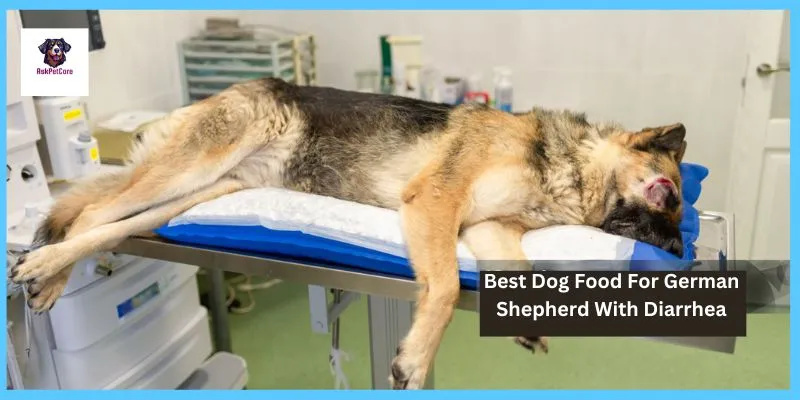
Hill’s Prescription Diet i/d Digestive Care
Description: Hill’s Prescription Diet i/d Digestive Care is a veterinarian-recommended formula specifically designed to support gastrointestinal health in dogs with digestive issues. This prescription diet features highly digestible ingredients to ease digestion and absorption, making it ideal for dogs with sensitive stomachs, chronic diarrhea, or other gastrointestinal disorders. The formula is carefully balanced to provide essential nutrients while being gentle on the digestive system. Additionally, it contains added antioxidants and omega-3 fatty acids to support overall health and immune function. Hill’s Prescription Diet i/d Digestive Care is available in both dry and canned formats to suit individual preferences and dietary needs.
Pros:
- Highly Digestible: Formulated with highly digestible ingredients to ease digestion and absorption, ideal for dogs with sensitive stomachs or gastrointestinal disorders.
- Balanced Nutrition: Provides essential nutrients, vitamins, and minerals to support overall health and well-being.
- Veterinarian Recommended: Developed by veterinarians and nutritionists to address specific digestive issues and support gastrointestinal health.
- Added Antioxidants and Omega-3 Fatty Acids: Enriched with antioxidants and omega-3 fatty acids to support immune function and overall health.
- Multiple Formats: Available in both dry and canned formats to accommodate individual preferences and dietary needs.
Cons:
- Cost: Hill’s Prescription Diet i/d Digestive Care may be more expensive compared to regular dog food brands.
- Prescription Requirement: Requires authorization from a veterinarian, limiting accessibility compared to over-the-counter dog foods.
- Transition Period: Some dogs may require a gradual transition period when switching to this diet to prevent digestive upset.
- Limited Variety: The range of flavors and formulations may be limited compared to non-prescription dog foods.
- Availability: It might not be as readily available in all regions compared to more mainstream dog food brands.
Overall, Hill’s Prescription Diet i/d Digestive Care offers a highly effective solution for managing digestive issues in dogs, providing tailored nutrition to support gastrointestinal health and overall well-being under veterinary supervision.

Purina Pro Plan Veterinary Diets EN Gastroenteric Formula
Description: Purina Pro Plan Veterinary Diets EN Gastroenteric Formula is a specialized dog food designed to support gastrointestinal health in dogs with digestive disorders or sensitivities. This formula features easily digestible ingredients to minimize digestive upset and promote nutrient absorption. It contains added prebiotics to support the growth of beneficial bacteria in the gut, which can aid in maintaining a healthy digestive tract. Purina Pro Plan Veterinary Diets EN Gastroenteric Formula is typically prescribed by veterinarians for dogs with conditions such as acute or chronic diarrhea, inflammatory bowel disease (IBD), or pancreatitis.
Pros:
- Easily Digestible: Formulated with highly digestible ingredients to minimize gastrointestinal upset and aid in nutrient absorption.
- Added Prebiotics: Contains added prebiotics to support the growth of beneficial bacteria in the gut, promoting a healthy digestive environment.
- Veterinarian Recommended: Developed by veterinarians and nutritionists specifically to address gastrointestinal issues in dogs.
- Variety of Formats: Available in both dry kibble and canned options to suit individual preferences and dietary needs.
- Effective for Various Conditions: Suitable for dogs with a range of digestive disorders, including acute or chronic diarrhea, inflammatory bowel disease (IBD), and pancreatitis.
Cons:
- Cost: Purina Pro Plan Veterinary Diets EN Gastroenteric Formula may be more expensive compared to regular dog food brands.
- Prescription Requirement: Requires authorization from a veterinarian, limiting accessibility compared to over-the-counter dog foods.
- Transition Period: Some dogs may require a gradual transition period when switching to this diet to prevent digestive upset.
- Limited Availability: It might not be as readily available in all regions compared to more mainstream dog food brands.
- Limited Variety: The range of flavors and formulations may be limited compared to non-prescription dog foods.
Overall, Purina Pro Plan Veterinary Diets EN Gastroenteric Formula offers a highly effective solution for managing gastrointestinal issues in dogs, providing tailored nutrition to support digestive health under veterinary supervision.
Royal Canin Gastrointestinal Low Fat
Description: Royal Canin Gastrointestinal Low Fat is a specialized dog food formulated to support gastrointestinal health in dogs with digestive sensitivities, particularly those with conditions like pancreatitis or hyperlipidemia. This formula is specifically designed with a reduced fat content to ease digestion and minimize the risk of exacerbating gastrointestinal symptoms. It contains highly digestible proteins and carbohydrates to support optimal nutrient absorption while reducing the workload on the digestive system. Additionally, Royal Canin Gastrointestinal Low Fat includes specific nutrients like EPA and DHA, along with antioxidants, to support digestive health and overall well-being.
Pros:
- Low Fat Content: Formulated with a reduced fat content to ease digestion and support dogs with conditions like pancreatitis or hyperlipidemia.
- Highly Digestible: Contains highly digestible proteins and carbohydrates to support optimal nutrient absorption and reduce gastrointestinal stress.
- Veterinarian Recommended: Developed by veterinarians and nutritionists specifically to address gastrointestinal issues in dogs.
- Added Nutrients: Enriched with specific nutrients like EPA and DHA, along with antioxidants, to support digestive health and overall well-being.
- Multiple Formats: Available in both dry kibble and canned options to accommodate individual preferences and dietary needs.
Cons:
- Cost: Royal Canin Gastrointestinal Low Fat may be more expensive compared to regular dog food brands.
- Prescription Requirement: Requires authorization from a veterinarian, limiting accessibility compared to over-the-counter dog foods.
- Transition Period: Some dogs may require a gradual transition period when switching to this diet to prevent digestive upset.
- Limited Availability: It might not be as readily available in all regions compared to more mainstream dog food brands.
- Limited Variety: The range of flavors and formulations may be limited compared to non-prescription dog foods.
Overall, Royal Canin Gastrointestinal Low Fat offers a highly effective solution for managing gastrointestinal issues in dogs, providing tailored nutrition to support digestive health under veterinary supervision.
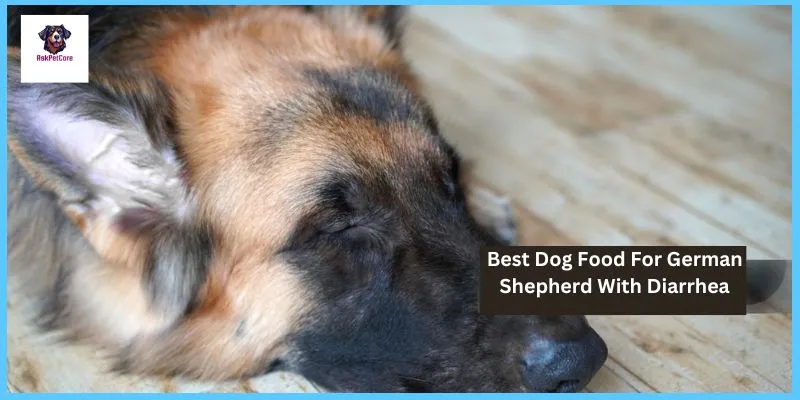
Iams Veterinary Formula Intestinal Plus Low-Residue is specially designed to support digestive health in dogs. It features highly digestible proteins and low-residue carbohydrates, which can help alleviate gastrointestinal issues and promote firmer stools. This formula is particularly beneficial for dogs with sensitive stomachs or those experiencing diarrhea or other digestive disturbances.
Pros:
- Highly digestible proteins: Helps ease digestion and minimize gastrointestinal upset.
- Low-residue carbohydrates: Supports digestive health and promotes firmer stools.
- Veterinary-formulated: Designed to meet the specific needs of dogs with digestive issues.
- Can be beneficial for dogs with sensitive stomachs or experiencing diarrhea.
Cons:
- May not be suitable for all dogs: Some dogs may require different dietary adjustments based on their individual needs and health conditions.
- Availability: Limited availability compared to commercial dog food brands, may require purchase through a veterinarian or specialty pet store.
- Cost: Veterinary formulas may be more expensive than standard dog foods, which can be a consideration for some pet owners.
Blue Buffalo Natural Veterinary Diet GI Gastrointestinal Support is formulated to provide support for dogs with digestive issues. It features easily digestible proteins and added fiber to promote digestive health and help maintain firm stools. This formula is designed to be gentle on sensitive stomachs and can be beneficial for dogs experiencing gastrointestinal disturbances such as diarrhea or vomiting.
Pros:
- Easily digestible proteins: Helps minimize gastrointestinal upset and promote smoother digestion.
- Added fiber: Supports digestive health and can help regulate bowel movements.
- Veterinary-formulated: Specifically designed to address the needs of dogs with digestive issues.
- Made by a reputable brand: Blue Buffalo is known for producing high-quality pet foods with natural ingredients.
Cons:
- May not be suitable for all dogs: Some dogs may have allergies or sensitivities to specific ingredients in the formula.
- Cost: Veterinary diets can be more expensive than standard dog foods, which may be a consideration for some pet owners.
- Availability: Limited availability compared to regular Blue Buffalo products, may require purchase through a veterinarian or specialty pet store.
Wellness Simple Limited Ingredient Diet is designed to cater to dogs with sensitive stomachs or food sensitivities. It features a limited number of high-quality ingredients to reduce the risk of triggering digestive issues. This formula is available in various protein options, such as lamb, salmon, or turkey, allowing pet owners to choose the best option for their dog’s individual needs.
Pros:
- Limited ingredient formula: Minimizes the risk of triggering food sensitivities or allergies.
- High-quality ingredients: Provides essential nutrients without unnecessary fillers or artificial additives.
- Various protein options: Allows pet owners to select the protein source that works best for their dog’s digestive health.
- Easily accessible: Widely available in pet stores and online retailers.
Cons:
- May not be suitable for all dogs: While designed for sensitive stomachs, some dogs may still experience digestive issues with certain protein sources.
- Cost: Higher priced compared to standard dog foods, which may be a consideration for some pet owners.
- Transition period: Some dogs may require a gradual transition to this diet to avoid gastrointestinal upset.

Natural Balance L.I.D. Limited Ingredient Diets are formulated with a minimal number of ingredients to diminish the likelihood of triggering food sensitivities in dogs. This diet supports digestive health and is available in several protein options, allowing pet owners to choose the best match for their dog’s needs.
Pros:
- Limited ingredient formula: Reduces the risk of food sensitivities and allergic reactions.
- Supports digestive health: Gentle on the stomach and suitable for dogs with sensitive digestive systems.
- Multiple protein options: Provides variety for dogs with specific protein preferences or sensitivities.
- Easily accessible: Widely available in pet stores and online retailers.
Cons:
- Some dogs may still experience sensitivities: While designed to minimize allergic reactions, it may not be suitable for all dogs with food sensitivities.
- Cost: Higher priced compared to standard dog foods, which may be a consideration for some pet owners.
- Transition period: Some dogs may require a gradual transition to this diet to avoid gastrointestinal upset.
Acana Singles Limited Ingredient Diet is crafted with a single source of animal protein and a minimal number of ingredients to support dogs with food sensitivities and promote gastrointestinal health. This formula is designed to be gentle on the stomach and provide essential nutrients while minimizing the risk of triggering allergic reactions.
Pros:
- Single protein source: Helps identify and eliminate potential allergens from the diet.
- Limited ingredient formula: Reduces the risk of food sensitivities and allergic reactions.
- Supports digestive health: Suitable for dogs with sensitive digestive systems or gastrointestinal issues.
- High-quality ingredients: Provides essential nutrients without unnecessary fillers or artificial additives.
Cons:
- Limited protein options: While beneficial for some dogs, the limited protein choices may not suit all preferences or sensitivities.
- Cost: Higher priced compared to standard dog foods, which may be a consideration for some pet owners.
- Availability: May not be as widely available as other commercial dog food brands, may require purchase through specialty pet stores or online retailers.
Instinct Limited Ingredient Diet Grain-Free Recipe is formulated with real lamb as the primary protein source and a limited number of ingredients to reduce the likelihood of triggering digestive issues in dogs. This grain-free recipe is designed to be easily digestible, making it suitable for dogs with sensitive stomachs or food sensitivities.
Pros:
- Real lamb as primary protein: Provides high-quality protein for muscle development and overall health.
- Limited ingredient formula: Minimizes the risk of triggering food sensitivities or allergic reactions.
- Grain-free: Suitable for dogs with grain sensitivities or those following a grain-free diet.
- Easily digestible: Helps promote healthy digestion and may alleviate gastrointestinal upset.
Cons:
- Limited protein options: While lamb is a high-quality protein source, some dogs may have preferences or sensitivities to other proteins.
- Cost: Higher priced compared to standard dog foods, which may be a consideration for some pet owners.
- Transition period: Some dogs may require a gradual transition to this diet to avoid gastrointestinal upset.
Canidae Grain-Free Pure Limited Ingredient Diet is crafted with a minimal number of ingredients, featuring a single source of animal protein. This formula is designed to promote digestive health and address food sensitivities in dogs, making it an ideal choice for those with sensitive stomachs or allergies.
Pros:
- Limited ingredient formula: Minimizes the risk of triggering food sensitivities and allergic reactions.
- Single source of animal protein: Helps identify and eliminate potential allergens from the diet.
- Grain-free: Suitable for dogs with grain sensitivities or those following a grain-free diet.
- Supports digestive health: Gentle on the stomach and suitable for dogs with sensitive digestive systems.
Cons:
- Limited protein options: While beneficial for some dogs, the limited protein choices may not suit all preferences or sensitivities.
- Cost: Higher priced compared to standard dog foods, which may be a consideration for some pet owners.
- Transition period: Some dogs may require a gradual transition to this diet to avoid gastrointestinal upset.
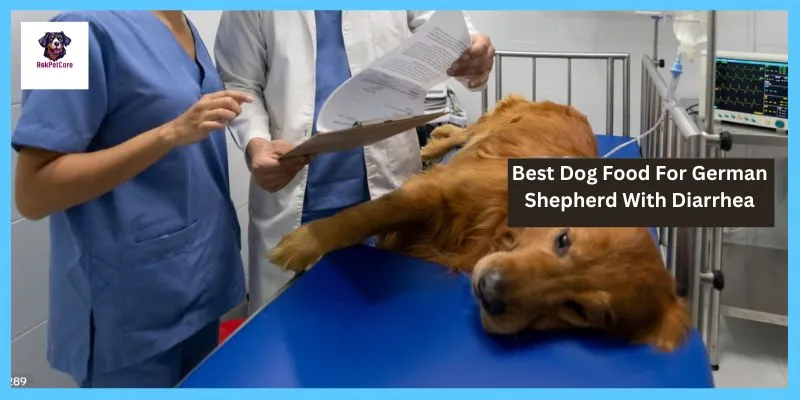
Treatment of diarrhea in German shepherds:
The treatment of diarrhea in German Shepherds involves addressing the underlying cause of the diarrhea while managing symptoms and supporting the dog’s overall health. Here are the steps typically taken in treating diarrhea in German Shepherds:
- Identify the Cause: The first step is to determine the underlying cause of the diarrhea. This may involve a thorough examination by a veterinarian, along with diagnostic tests such as fecal analysis, blood tests, and sometimes imaging studies.
- Fluid Therapy: Diarrhea can lead to dehydration, so it’s essential to ensure the dog remains hydrated. In cases of mild diarrhea, encouraging increased water intake may be sufficient. However, in more severe cases, especially if dehydration is present, the dog may require intravenous or subcutaneous fluid therapy administered by a veterinarian.
- Dietary Management: Providing a bland, easily digestible diet can help soothe the gastrointestinal tract and firm up stools. Options include boiled chicken and rice, low-fat cottage cheese and oatmeal, or commercially available prescription diets formulated for digestive issues. It’s essential to avoid feeding table scraps or rich, fatty foods, as these can exacerbate diarrhea.
- Medications: Depending on the underlying cause of the diarrhea, medications may be prescribed. These may include antibiotics for bacterial infections, dewormers for parasitic infections, anti-inflammatory drugs for inflammatory conditions, or medications to alleviate symptoms such as vomiting or abdominal pain.
- Probiotics: Supplementing with probiotics can help restore the balance of beneficial bacteria in the gut, which may be disrupted during episodes of diarrhea. Probiotics are available in various forms, including powders, capsules, and specially formulated dog foods.
- Follow-Up: It’s essential to monitor the dog’s condition closely and follow any recommendations provided by the veterinarian. In some cases, further diagnostic tests or treatments may be necessary if the diarrhea persists or worsens.
- Preventative Measures: Once the diarrhea resolves, it’s crucial to take steps to prevent future episodes. This may include gradually reintroducing the dog’s regular diet, avoiding dietary indiscretion, maintaining a consistent feeding schedule, and minimizing exposure to potential allergens or irritants.
Always consult with a veterinarian for proper diagnosis and treatment of diarrhea in German Shepherds, as the appropriate approach will depend on the specific cause and severity of the diarrhea. Additionally, prompt veterinary care is essential for ensuring the dog’s health and well-being.

Fluid Therapy:
Diarrhea can lead to dehydration, so it’s essential to ensure the dog remains hydrated. In cases of mild diarrhea, encouraging increased water intake may be sufficient. However, in more severe cases, especially if dehydration is present, the dog may require intravenous or subcutaneous fluid therapy administered by a veterinarian.tell me the fluid and doze
The fluid therapy administered to a German Shepherd with diarrhea will depend on the severity of dehydration and the individual dog’s needs. Here’s a general guideline for fluid therapy in dogs:
- Oral Rehydration Therapy: In cases of mild diarrhea where the dog is not severely dehydrated, oral rehydration solutions or electrolyte solutions may be recommended. These solutions can be administered by mixing them with water and encouraging the dog to drink. The dosage will vary depending on the product and the dog’s size, so it’s essential to follow the instructions provided by the veterinarian or the product label.
- Intravenous Fluid Therapy: For more severe cases of dehydration or if the dog is unable to drink sufficient fluids orally, intravenous (IV) fluid therapy may be necessary. This involves administering fluids directly into the dog’s bloodstream through a catheter placed in a vein. The type and volume of fluids administered will be determined by the veterinarian based on the dog’s weight, degree of dehydration, and specific fluid and electrolyte needs.
- Subcutaneous Fluid Therapy: In some cases, subcutaneous (under the skin) fluid therapy may be used to rehydrate the dog. This involves injecting fluids into the loose skin on the dog’s back, where it is absorbed into the body over time. Subcutaneous fluid therapy is typically used for mild to moderate dehydration and can be administered at home under the guidance of a veterinarian.
It’s crucial to seek veterinary care if you suspect your German Shepherd is dehydrated due to diarrhea, as dehydration can quickly become a life-threatening condition if left untreated. The veterinarian will assess the dog’s hydration status and determine the most appropriate fluid therapy based on the severity of dehydration and other factors.
Oral Rehydration Therapy:
Three common oral rehydration solutions for dogs include:
- Pedialyte: Pedialyte is a well-known oral rehydration solution formulated for infants and children but can also be used for dogs. It contains electrolytes such as sodium and potassium, which help replenish fluids and electrolytes lost due to diarrhea or dehydration.
- Gatorade: Gatorade is a sports drink that contains electrolytes like sodium and potassium, which can help replenish lost fluids and electrolytes in dogs with diarrhea. However, it’s essential to use the original formula without artificial sweeteners like xylitol, which can be toxic to dogs.
- Electrolyte Solutions for Pets: Several electrolyte solutions are specifically formulated for pets and can be found at veterinary clinics or pet supply stores. These solutions are designed to help rehydrate dogs and restore electrolyte balance, making them suitable for use in cases of mild dehydration or diarrhea.
Intravenous Fluid Therapy.
Three common intravenous fluid solutions used in veterinary medicine for fluid therapy include:
- Lactated Ringer’s Solution (LRS): Lactated Ringer’s Solution is a balanced electrolyte solution containing sodium chloride, potassium chloride, calcium chloride, and sodium lactate in sterile water. It is commonly used for fluid resuscitation and maintenance in dogs and other animals.
- 0.9% Sodium Chloride Solution (Normal Saline): Normal saline is a solution of sodium chloride (salt) in water, with a concentration of 0.9%. It is isotonic to the body’s fluids and is often used for fluid replacement and rehydration in cases of dehydration or electrolyte imbalances.
- Plasma-Lyte: Plasma-Lyte is a balanced electrolyte solution containing sodium, potassium, chloride, acetate, and gluconate in sterile water. It is similar to Lactated Ringer’s Solution but does not contain lactate. Plasma-Lyte is used for fluid therapy in dogs and other animals, particularly in cases where lactate may be contraindicated.

Medications.
Here are five medications commonly used for treating diarrhea in dogs along with brief descriptions of how they are used:
- Metronidazole (Flagyl): Metronidazole is an antibiotic medication that can be prescribed to treat bacterial and protozoal infections in the gastrointestinal tract. It can also help reduce inflammation and control diarrhea associated with inflammatory bowel disease (IBD). Dosage typically ranges from 5 to 20 mg per pound of body weight every 8 to 12 hours, depending on the severity of the condition. It’s essential to follow the veterinarian’s dosage instructions and complete the full course of treatment.
- Loperamide (Imodium): Loperamide is an over-the-counter antidiarrheal medication that works by slowing down the movement of the intestines, reducing the frequency and urgency of bowel movements. It can be used to manage acute diarrhea in dogs, but it should only be used under veterinary guidance and never given to dogs with certain conditions like infectious diarrhea or toxic ingestion. The typical dosage for dogs is 0.1 to 0.2 mg per pound of body weight every 8 to 12 hours.
- Fenbendazole (Panacur): Fenbendazole is an anthelmintic medication commonly used to treat intestinal parasites such as roundworms, hookworms, whipworms, and certain protozoal infections like Giardia. It is typically administered orally once daily for 3 to 5 days, with the dosage varying depending on the specific parasite being treated and the dog’s weight. It’s essential to follow the veterinarian’s instructions and repeat the treatment as necessary to ensure all parasites are eradicated.
- Bismuth Subsalicylate (Pepto-Bismol): Bismuth subsalicylate is an over-the-counter medication with antidiarrheal and anti-inflammatory properties. It can help soothe the gastrointestinal tract and alleviate symptoms such as diarrhea, vomiting, and abdominal discomfort. The dosage for dogs is typically 0.5 to 1 ml per pound of body weight every 6 to 8 hours, but it’s crucial to consult with a veterinarian for proper dosing instructions and to ensure it is safe for your dog.
- Probiotics: Probiotics are supplements containing beneficial bacteria that can help restore the balance of the gut microbiota and promote gastrointestinal health. They are often used in conjunction with other treatments for diarrhea, particularly after antibiotic therapy, to replenish the gut flora. Probiotics for dogs are available in various forms, including powders, capsules, and specially formulated dog foods. The dosage and administration instructions will vary depending on the specific product, so it’s essential to follow the manufacturer’s recommendations or consult with a veterinarian for guidance.
Here’s the information presented in a simple table format:
| Medication | Description | How to Use |
| Metronidazole | Antibiotics are used to treat bacterial and protozoal infections in the gastrointestinal tract. Can also help reduce inflammation and control diarrhea associated with IBD. | Dosage typically ranges from 5 to 20 mg per pound of body weight every 8 to 12 hours. Follow the veterinarian’s instructions and complete a full course of treatment. |
| Loperamide | Over-the-counter antidiarrheal medication that slows down intestinal movement, reducing the frequency and urgency of bowel movements. | Typically used for acute diarrhea. Dosage: 0.1 to 0.2 mg per pound of body weight every 8 to 12 hours. Use under veterinary guidance and avoid certain conditions. |
| Fenbendazole | Anthelmintic medication used to treat intestinal parasites like roundworms, hookworms, whipworms, and protozoal infections like Giardia. | Administered orally once daily for 3 to 5 days. Dosage varies based on the parasite and the dog’s weight. Follow the veterinarian’s instructions and repeat the treatment as necessary. |
| Bismuth Subsalicylate | Over-the-counter medication with antidiarrheal and anti-inflammatory properties. Helps soothe the gastrointestinal tract and alleviate symptoms like diarrhea and vomiting. | Dosage: 0.5 to 1 ml per pound of body weight every 6 to 8 hours. Consult a veterinarian for proper dosing and safety considerations. |
| Probiotics | Supplements containing beneficial bacteria to restore balance of gut microbiota and promote gastrointestinal health. Often used after antibiotic therapy. | Available in various forms. Dosage and administration instructions vary by product. Follow the manufacturer’s recommendations or consult a veterinarian for guidance on specific product usage. |
This table provides a concise overview of each medication, its description, and how it should be used in treating diarrhea in German Shepherds.
Probiotics:
Supplementing with probiotics can help restore the balance of beneficial bacteria in the gut, which may be disrupted during episodes of diarrhea. Probiotics are available in various forms, including powders, capsules, and specially formulated dog foods.
It seems like you’re referring to probiotics as medications, but probiotics are actually supplements rather than medications. However, I can provide you with the names of five probiotic supplements for dogs and how they are typically used:
- Proviable-DC (Nutramax Laboratories): Proviable-DC is a probiotic supplement available in capsule form. It contains multiple strains of beneficial bacteria to support gastrointestinal health in dogs. The capsules can be given whole or opened and sprinkled onto food. Dosage instructions vary based on the size of the dog and severity of symptoms, so it’s essential to follow the manufacturer’s recommendations or consult with a veterinarian.
- FortiFlora (Purina): FortiFlora is a probiotic supplement in powder form, containing a single strain of beneficial bacteria (Enterococcus faecium). It is often recommended to support digestive health and manage diarrhea in dogs. The powder can be sprinkled onto food once daily. Dosage instructions are typically provided on the product packaging or by a veterinarian.
- Bene-Bac Plus (PetAg): Bene-Bac Plus is a probiotic gel specifically formulated for dogs and other animals. It contains multiple strains of beneficial bacteria to help maintain gastrointestinal balance and support immune function. The gel can be administered orally directly from the tube or mixed with food. Dosage instructions vary depending on the size of the dog and the severity of symptoms.
- Vetri Mega Probiotic (VetriScience Laboratories): Vetri Mega Probiotic is a probiotic supplement available in capsule form. It contains multiple strains of beneficial bacteria to promote digestive health and immune function in dogs. The capsules can be given whole or opened and mixed with food. Dosage instructions typically vary based on the size of the dog and the specific health condition being addressed.
- Purina Pro Plan Veterinary Diets FortiFlora Canine Probiotic Supplement: This is another formulation of FortiFlora, specifically designed for veterinary use. It comes in powder form and is often recommended by veterinarians to support gastrointestinal health and manage digestive issues in dogs. The powder can be sprinkled onto food once daily, following the dosage instructions provided by the veterinarian.
These probiotic supplements are intended to be used as part of a comprehensive treatment plan for managing diarrhea and promoting gastrointestinal health in dogs. Always consult with a veterinarian before starting any new supplement regimen for your dog.
Here’s the information presented in a simple table format:
| Probiotic Supplement | Description | How to Use |
| Proviable-DC (Nutramax Laboratories) | Probiotic supplements available in capsule form, containing multiple strains of beneficial bacteria to support gastrointestinal health in dogs. | Capsules can be given whole or opened and sprinkled onto food. Dosage varies based on dog size and symptoms. Follow the manufacturer’s or veterinarian’s instructions. |
| FortiFlora (Purina) | Probiotic supplement in powder form, containing a single strain of beneficial bacteria (Enterococcus faecium). Often recommended for digestive health and diarrhea management. | The powder can be sprinkled onto food once daily. Dosage instructions are provided on the packaging or by a veterinarian. |
| Bene-Bac Plus (PetAg) | Probiotic gel formulated for dogs and other animals, contains multiple strains of beneficial bacteria to maintain gastrointestinal balance and support immune function. | The gel can be administered orally or mixed with food. Dosage varies based on dog size and symptoms. |
| Vetri Mega Probiotic (VetriScience Labs) | Probiotic supplements are available in capsule form, containing multiple strains of beneficial bacteria for digestive health and immune function in dogs. | Capsules can be given whole or opened and mixed with food. Dosage varies based on dog size and health condition. |
| Purina Pro Plan Veterinary Diets FortiFlora | Formulation of FortiFlora specifically designed for veterinary use. Comes in powder form, recommended by veterinarians for supporting gastrointestinal health in dogs. | The powder can be sprinkled onto food once daily. Follow dosage instructions provided by the veterinarian. |
These probiotic supplements are intended to promote digestive health and manage diarrhea in dogs, but it’s essential to consult with a veterinarian before starting any new supplement regimen for your dog.
Why does my German shepherd keep getting diarrhea?
There are several potential reasons why your German Shepherd may be experiencing recurrent diarrhea. Some common causes include:
- Dietary Indiscretion: German Shepherds, like many dogs, may have a tendency to eat things they shouldn’t, such as garbage, table scraps, or foreign objects. Dietary indiscretion can lead to gastrointestinal upset and diarrhea.
- Food Allergies or Intolerances: Some German Shepherds may be sensitive or allergic to certain ingredients in their diet, such as grains, dairy, or specific proteins. Food allergies or intolerances can lead to digestive issues, including diarrhea.
- Sudden Diet Changes: Abrupt changes in your dog’s diet, such as switching to a new brand or type of food, can disrupt the balance of bacteria in the gastrointestinal tract and lead to diarrhea.
- Parasites: Intestinal parasites such as roundworms, hookworms, whipworms, or Giardia can cause diarrhea in dogs. Regular deworming and fecal testing are essential to detect and treat these parasites.
- Bacterial or Viral Infections: Infections caused by bacteria (such as Salmonella or E. coli) or viruses (such as parvovirus or canine distemper virus) can lead to gastrointestinal symptoms, including diarrhea.
- Stress or Anxiety: German Shepherds are known for being sensitive dogs that may experience stress or anxiety in certain situations, such as changes in their environment, routine, or social interactions. Stress can manifest as gastrointestinal upset, including diarrhea.
- Inflammatory Bowel Disease (IBD): IBD is a chronic inflammatory condition of the gastrointestinal tract that can cause diarrhea, vomiting, weight loss, and other symptoms. German Shepherds are predisposed to IBD, and genetics may play a role in its development.
- Pancreatitis: Pancreatitis is inflammation of the pancreas, which can lead to digestive upset and diarrhea. Certain breeds, including German Shepherds, are predisposed to pancreatitis.
- Medication Side Effects: Some medications, including antibiotics, nonsteroidal anti-inflammatory drugs (NSAIDs), and certain supplements, can cause gastrointestinal side effects such as diarrhea.
If your German Shepherd is experiencing recurrent diarrhea, it’s essential to consult with a veterinarian to determine the underlying cause and develop an appropriate treatment plan. Your vet may recommend diagnostic tests, dietary changes, medications, or other interventions based on your dog’s individual needs and health status.
I hope you will thoroughly understand the reasons for diarrhea, its signs and symptoms, and the homemade and prepared foods for diarrhea in German shepherds still any quarry contact me.
Here are some reference books that are considered authoritative on the topic of dog care, including nail care:
- “The Complete Dog Owner’s Manual” by Dr. Bruce Fogle
- “The Ultimate Guide to Dog Care: Everything You Need to Know to Keep Your Dog Happy and Healthy” by Amy Marder and Andrew Luescher
Disclaimer: This information is general advice only. Before starting any treatment or supplement with your pet, please consult your vet first for the best approach to getting your pet back to its best health.
Check with your veterinarian before giving any medication or supplement at home, to be sure it’s safe for your pup. Some substances can be toxic or harmful, including “dog-safe” medications and supplements if they are given at the wrong dosage.
